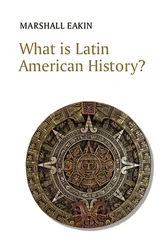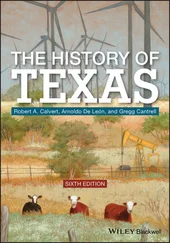Robert Mackenzie - America. A history
Здесь есть возможность читать онлайн «Robert Mackenzie - America. A history» — ознакомительный отрывок электронной книги совершенно бесплатно, а после прочтения отрывка купить полную версию. В некоторых случаях можно слушать аудио, скачать через торрент в формате fb2 и присутствует краткое содержание. Жанр: foreign_language, foreign_prose, на английском языке. Описание произведения, (предисловие) а так же отзывы посетителей доступны на портале библиотеки ЛибКат.
- Название:America. A history
- Автор:
- Жанр:
- Год:неизвестен
- ISBN:нет данных
- Рейтинг книги:4 / 5. Голосов: 1
-
Избранное:Добавить в избранное
- Отзывы:
-
Ваша оценка:
- 80
- 1
- 2
- 3
- 4
- 5
America. A history: краткое содержание, описание и аннотация
Предлагаем к чтению аннотацию, описание, краткое содержание или предисловие (зависит от того, что написал сам автор книги «America. A history»). Если вы не нашли необходимую информацию о книге — напишите в комментариях, мы постараемся отыскать её.
America. A history — читать онлайн ознакомительный отрывок
Ниже представлен текст книги, разбитый по страницам. Система сохранения места последней прочитанной страницы, позволяет с удобством читать онлайн бесплатно книгу «America. A history», без необходимости каждый раз заново искать на чём Вы остановились. Поставьте закладку, и сможете в любой момент перейти на страницу, на которой закончили чтение.
Интервал:
Закладка:
1620 A.D. On a sunny morning in July the Pilgrims kneel upon the sea-shore at Delfthaven, while the pastor prays for the success of their journey. Out upon the gleaming sea a little ship lies waiting. Money has not been found to transplant the whole colony, and only a hundred have been sent. The remainder will follow when they can. These hundred depart amid tears and prayers and fond farewells. Mr. Robinson dismissed them with counsels which breathed a pure and high-toned wisdom. He urged them to keep their minds ever open for the reception of new truths. “The Lord,” he said, “has more truth to break forth out of his holy Word. I cannot sufficiently bewail the condition of the Reformed Churches, who are come to a period in religion, and will go at present no further than the instruments of their reformation. Luther and Calvin were great and shining lights in their times, yet they penetrated not into the whole counsel of God, but, were they now living, would be as willing to embrace further light as that which they first received. I beseech you, remember that you be ready to receive whatever truth shall be made known to you from the written Word of God.”
Sixty-eight years later, another famous departure from the coast of Holland took place. It was that of William, Prince of Orange, coming to deliver England from tyranny, and give a new course to English history. A powerful fleet and army sailed with the prince. The chief men of the country accompanied him to his ships. Public prayers for his safety were offered up in all the churches. Insignificant beside this seems at first sight the unregarded departure of a hundred working-men and women. It was in truth, however, not less, but even more memorable. For these poor people went forth to found a great empire, destined to leave as deep and as enduring a mark upon the world’s history as Rome or even as England has done.
The Mayflower , in which the Pilgrims made their voyage, was a ship of one hundred and sixty tons. The weather proved stormy and cold; the voyage unexpectedly long. It was early in September when they sailed; it was not till the 11th November that the Mayflower dropped her anchor in the waters of Cape Cod Bay.
It was a bleak-looking and discouraging coast which lay before them. Nothing met the eye but low sand-hills, covered with ill-grown wood down to the margin of the sea. The Pilgrims had now to choose a place for their settlement. About this they hesitated so long that the captain threatened to put them all on shore and leave them. Little expeditions were sent to explore. At first no suitable locality could be found. The men had great hardships to endure. The cold was so excessive that the spray froze upon their clothes, and they resembled men cased in armour. At length a spot was fixed upon. The soil appeared to be good, and abounded in “delicate springs” of water. On the 23rd December the Pilgrims landed, stepping ashore upon a huge boulder of granite, which is still reverently preserved by their descendants. Here they resolved to found their settlement, which they agreed to call New Plymouth.
The winter was severe, and the infant colony was brought very near to extinction. They had been badly fed on board the Mayflower , and for some time after going on shore there was very imperfect shelter from the weather. Sickness fell heavily on the worn-out Pilgrims. Every second day a grave had to be dug in the frozen ground. By the time spring came in there were only fifty survivors, and these sadly enfeebled and dispirited.
But all through this dismal winter the Pilgrims laboured at their heavy task. The care of the sick, the burying of the dead, sadly hindered their work; but the building of their little town went on. They found that nineteen houses would contain their diminished numbers. These they built. Then they surrounded them with a palisade. Upon an eminence beside their town they erected a structure which served a double purpose. Above, it was a fort, on which they mounted six cannon; below, it was their church. Hitherto the Indians had been a cause of anxiety, but had done them no harm. Now they felt safe. Indeed there had never been much risk. A recent epidemic had swept off nine-tenths of the Indians who inhabited that region, and the discouraged survivors could ill afford to incur the hostility of their formidable visitors.
The Pilgrims had been careful to provide for themselves a government. They had drawn up and signed, in the cabin of the Mayflower , a document forming themselves into a body politic, and promising obedience to all laws framed for the general good. Under this constitution they appointed John Carver to be their governor. They dutifully acknowledged King James, but they left no very large place for his authority. They were essentially a self-governing people. They knew what despotism was, and they were very sure that democracy could by no possibility be so bad.
The welcome spring came at length, and “the birds sang in the woods most pleasantly.” The health of the colony began somewhat to improve, but there was still much suffering to endure. The summer passed not unprosperously. They had taken possession of the deserted clearings of the Indians, and had no difficulty in providing themselves with food. But in the autumn came a ship with a new company of Pilgrims. This was very encouraging; but unhappily the ship brought no provisions, and the supplies of the colonists were not sufficient for this unexpected addition. For six months there was only half allowance to each. Such straits recurred frequently during the first two or three years. Often the colonists knew not at night “where to have a bit in the morning.” Once or twice the opportune arrival of a ship saved them from famishing. They suffered much, but their cheerful trust in Providence and in their own final triumph never wavered. They faced the difficulties of their position with undaunted hearts. Slowly but surely the little colony struck its roots and began to grow.
The years which followed the coming of the Pilgrims were years through which good men in England found it bitter to live. Charles I. was upon the throne; Laud was Archbishop of Canterbury. Bigotry as blind and almost as cruel as England had ever seen thus sat in her high places. Dissent from the Popish usages, which prevailed more and more in the Church, was at the peril of life. A change was near. John Hampden was farming his lands in Buckinghamshire. A greater than he – his cousin, Oliver Cromwell – was leading his quiet rural life at Huntingdon, not without many anxious and indignant thoughts about the evils of his time. John Milton was peacefully writing his minor poems, and filling his mind with the learning of the ancients. The Men had come, and the Hour was at hand. But as yet King Charles and Archbishop Laud had it all their own way. They fined and imprisoned every man who ventured to think otherwise than they wished him to think: they slit his nose, they cut off his ears, they gave him weary hours in the pillory. They ordered that men should not leave the kingdom without the King’s permission. Eight ships lay in the Thames, with their passengers on board, when that order was given forth. The soldiers cleared the ships, and the poor emigrants were driven back, in poverty and despair, to endure the misery from which they were so eager to escape.
New England was the refuge to which the wearied victims of this senseless tyranny looked. The Pilgrims wrote to their friends at home, and every letter was regarded with the interest due to a “sacred script.” They had hardships to tell of at first; then they had prosperity and comfort; always they had liberty. New England seemed a paradise to men who were denied permission to worship God according to the manner which they deemed right. Every summer a few ships were freighted for the settlements. Many of the silenced ministers came. Many of their congregations came, glad to be free, at whatever sacrifice, from the tyranny which disgraced their native land. The region around New Plymouth became too narrow for the population. From time to time a little party would go forth, with a minister at its head. With wives and children and baggage they crept slowly through the swampy forest. By a week or two of tedious journeying they reached some point which pleased their fancy, or to which they judged that Providence had sent them. There they built their little town, with its wooden huts, its palisade, its fort, on which one or two guns were ultimately mounted. Thus were founded many of the cities of New England.
Читать дальшеИнтервал:
Закладка:
Похожие книги на «America. A history»
Представляем Вашему вниманию похожие книги на «America. A history» списком для выбора. Мы отобрали схожую по названию и смыслу литературу в надежде предоставить читателям больше вариантов отыскать новые, интересные, ещё непрочитанные произведения.
Обсуждение, отзывы о книге «America. A history» и просто собственные мнения читателей. Оставьте ваши комментарии, напишите, что Вы думаете о произведении, его смысле или главных героях. Укажите что конкретно понравилось, а что нет, и почему Вы так считаете.












